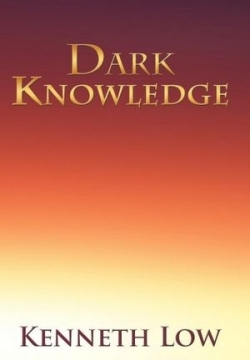Dark Knowledge
It is problematic for people living in today’s western society to have ethnocentric biases using their own culture as the set paradigm to judge non-western cultures. The same thing can be said when someone from the twenty-first century judges older cultures. A just comparison is difficult and filled with biased opinions and misconceptions. To understand our ancestor’s beliefs and ideologies, all preconceived notions of modern ethics and morality must be forgotten. We have to try to cultivate empathy towards the accepted normalcy of the specified time period’s citizenry.
The main premise for Kenneth Low’s Dark Knowledge is to find the actual reason for Jesus Christ’s execution. His book is also an immersion in the morals, ethics, and customs of Roman occupied Judea. The author understands the folly of using modern sensibilities to make rational sense of ancient Judea, a region that was struggling to function under the traditional Laws of Moses while being infected by Greco-Roman influences. Low states that we will also find the same type of irrationality when it comes to understanding the teachings of Jesus Christ using our modern thought processes. He writes, “Jesus Christ spoke in the language of the Old Testament. The Old Testament was written before the Greeks. It was the Greeks who invented reason. Nothing in the Bible can be said to fly in the face of reason…This is why Westerners encounter so much difficulty in Biblical interpretation. Our way of thinking takes its foundation from the development of mathematics, empirical science, and philosophy of the early Greeks…The Bible isn’t written in the language of rational ideas. It is written in the language of human emotion…A rational idea is a logical construct of the conscious mind. An emotional truth is just what one feels to be true.”
The author fails to provide a works-cited list, footnotes, or a working bibliography. He makes many deductions and inferences about ancient Judea, Jesus, and his disciples through what he feels “common sense might dictate.” In the first chapter, “Historical Background,” he provides a kind of disclaimer that gives him almost complete discretion to make broad generalizations. He writes, “…it will be helpful to review some historical background relevant to Judea at the time of Christ. This is not intended to be a complete or careful review but rather is only intended to provide an unfocused look at some of the themes of that era.” To give a semblance of authenticity to his writing, as well as a factual basis for Judea during the time periods of the first and second centuries BC, Low uses as “source documents” the historian Josephus’ Antiquities of the Jews and The Jewish War. But even Josephus’ works are not instrumental in his search to discover why Jesus Christ was executed.
The later chapters of Dark Knowledge examine the different Gospels’ accounts of Jesus Christ’s life, and an analysis of his teachings and parables. There is no doubt that Low believes that Jesus Christ was and is the son of God. His divinity is not even questioned. After comparing the differing books of the New Testament and their stories about Jesus’ life, death, and resurrection (including the Gospels of Thomas and Phillip which are not listed in the Canonical gospels), Low reiterates how one cannot look at the life of Christ and his teachings with contemporary logic because they were written for a specific emotional response. The author still does not offer an explanation for Jesus Christ’s crucifixion, and he refuses to accept that Jesus’ politics and his claims of divinity (which were deemed blasphemous by the theocracy of ancient Judea) were the reasons for his execution. He does accept that Jesus Christ fulfilled prophecy from the Old Testament and predicted his own death and resurrection. But the above reasons are not conclusive (for the execution) to Low, and he gives semi-plausible ideas to support his arguments.
Low also points to the Laws of Moses, noting that, if broken, they were punishable by death. For example, striking or cursing one’s father or mother, adultery, bestiality, some forms of incest, etc., all warranted a death sentence. Using the process of elimination, the author comes to a final conclusion: Jesus Christ was crucified because he was a practicing homosexual.
Low fails in his treatise because he posits a “logical argument that will prove the reason for the crucifixion of Jesus Christ.” But he also says that, “Our way of thinking takes its foundation from the development of mathematics, empirical science, and philosophy of the early Greeks…The Bible isn’t written in the language of rational ideas. It is written in the language of human emotion.” Therefore, any conclusion Low reaches through logic is contradictory to his own argument.
As always, one’s religious beliefs are based in faith and faith speaks the language of the Bible, the language of human emotion, the language of the heart.
Reviewed by
Lee Gooden
Disclosure: This article is not an endorsement, but a review. The publisher of this book provided free copies of the book and paid a small fee to have their book reviewed by a professional reviewer. Foreword Reviews and Clarion Reviews make no guarantee that the publisher will receive a positive review. Foreword Magazine, Inc. is disclosing this in accordance with the Federal Trade Commission’s 16 CFR, Part 255.

